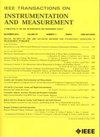自动驾驶中摄像头和激光雷达的全生命周期标定方法
IF 5.6
2区 工程技术
Q1 ENGINEERING, ELECTRICAL & ELECTRONIC
IEEE Transactions on Instrumentation and Measurement
Pub Date : 2025-04-30
DOI:10.1109/TIM.2025.3565783
引用次数: 0
摘要
近年来,光激光探测和测距(LiDAR)和摄像技术的进步使人们越来越关注自动驾驶。传感器融合提供了互补的信息,克服了单个传感器的局限性,提高了自动驾驶汽车的安全性。实现这种融合的关键在于传感器校准。本文提出了一种集成离线和在线过程的全生命周期校准方法,以实现自动驾驶中摄像头-激光雷达系统的高精度高效校准。提出的方法统一了校准阶段,解决了初始工厂校准和车辆运行过程中所需的动态调整。使用专门的校准板和标准化工作流程进行离线校准,以建立准确的初始参数,确保后续操作的坚实基础。在线校准利用基于学习的端到端深度声明性网络实时动态调整校准参数,补偿由振动、松动或碰撞引起的传感器位移。进行了大量的实验来验证所提出的方法。通过仿真和实际测试的定性和定量结果验证了离线校准的准确性和鲁棒性。在KITTI和NuScenes数据集上,平均平移误差分别为0.667和1.937 cm,平均旋转误差分别为0.149°和0.138°,证明了在线校准的精度具有竞争力。此外,通过实际实验验证了在线标定方法的实时性,其帧率约为11帧/秒。这种全生命周期校准方法显著提高了自动驾驶系统的准确性、可靠性和长期稳定性,解决了不同环境下传感器校准的关键挑战。代码将在https://github.com/weiming2/off-onlineCalib.git上发布本文章由计算机程序翻译,如有差异,请以英文原文为准。
A Full-Lifecycle Calibration Method for Camera and LiDAR in Autonomous Driving
In recent years, advancements in light laser detection and ranging (LiDAR) and camera technologies have brought increasing attention to autonomous driving. Sensor fusion provides complementary information that overcomes the limitations of individual sensors and improves the safety of autonomous vehicles. The key to achieving this fusion lies in sensor calibration. This article presents a full-lifecycle calibration method that integrates offline and online processes to achieve high-precision and efficient calibration for camera-LiDAR systems in autonomous driving. The proposed approach unifies the calibration stages, addressing both the initial factory calibration and the dynamic adjustments required during vehicle operation. Offline calibration is performed using specialized calibration boards and standardized workflows to establish accurate initial parameters, ensuring a robust foundation for subsequent operations. Online calibration leverages a learning-based, end-to-end deep declarative network to dynamically adjust calibration parameters in real time, compensating for sensor displacement caused by vibration, loosening, or collisions. Extensive experiments are conducted to validate the proposed method. The accuracy and robustness of the offline calibration are validated through quantitative and qualitative results in simulated and real-world tests. Competitive precision in online calibration is demonstrated on public datasets, with average translation errors of 0.667 and 1.937 cm, and average rotation errors of 0.149° and 0.138° achieved on the KITTI and NuScenes datasets, respectively. Additionally, the online calibration method’s real-time capability is confirmed in practical experiments, with a frame rate of approximately 11 frames/s. This full-lifecycle calibration method significantly improves the accuracy, reliability, and long-term stability of autonomous driving systems, addressing critical challenges in sensor calibration across diverse environments. The code will be released at https://github.com/weiming2/off-onlineCalib.git
求助全文
通过发布文献求助,成功后即可免费获取论文全文。
去求助
来源期刊

IEEE Transactions on Instrumentation and Measurement
工程技术-工程:电子与电气
CiteScore
9.00
自引率
23.20%
发文量
1294
审稿时长
3.9 months
期刊介绍:
Papers are sought that address innovative solutions to the development and use of electrical and electronic instruments and equipment to measure, monitor and/or record physical phenomena for the purpose of advancing measurement science, methods, functionality and applications. The scope of these papers may encompass: (1) theory, methodology, and practice of measurement; (2) design, development and evaluation of instrumentation and measurement systems and components used in generating, acquiring, conditioning and processing signals; (3) analysis, representation, display, and preservation of the information obtained from a set of measurements; and (4) scientific and technical support to establishment and maintenance of technical standards in the field of Instrumentation and Measurement.
 求助内容:
求助内容: 应助结果提醒方式:
应助结果提醒方式:


